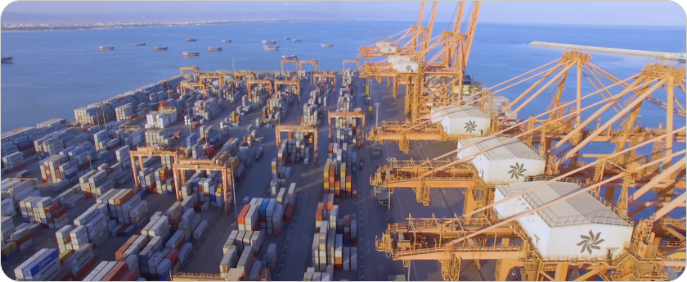




Press releases
The Port of Salalah, Oman’s major regional gateway port and transshipment hub on the Arabian Sea, has added another main line service with the commencement of Mediterranean Shipping Company’s New Falcon direct Asia/Middle East service. The first New Falcon Salalah port call, the 7,849 TEU capacity MSC Ningbo, arrived from Colombo on 24th May 2016. The New Falcon Service, which was introduced by MSC in March of 2015, operates with a string of eight 8,000 TEU-capacity class vessels, featuring direct service between China, Singapore, Malaysia, Sri Lanka and India with the Persian Gulf, and now Oman.
“The New Falcon Service, which offers the fastest transit time from the Far East to Oman will not only cater to the growing import market of Salalah, but will also open new opportunities to serve our extended hinterland” said Port of Salalah CEO David Gledhill, adding “This new connectivity will also facilitate enhanced trade with other economies in the Middle East.
Swiss-Based MSC is currently the world’s second-largest shipping line in both capacity, and fleet size, with an overall capacity of 2.68 million TEUs and 486 vessels, calling 315 ports on over 200 trade routes around the world.
“We are happy to see another MSC service calling on Salalah, demonstrating the confidence of one of the world’s great liner networks in our ability to meet the needs of global logistics community serving the people and businesses of the Persian Gulf and the Arabian Sea.” stated Mr. Ahmed Akaak, the Deputy CEO of the Port of Salalah.
The Port of Salalah, which is operated by APM Terminals as part of the APM Terminals Global Terminal Network, and in which APM Terminals holds a 30% share, handled 2.6 million TEUs in 2015, along with 12.5 million tons of bulk cargo. The Port of Salalah has recently undergone an expansion, which doubled the quay length, and increase dry bulk capacity to 20 million tons, and liquid bulk capacity to 6 million tons annually.

 Previous Press Release
Previous Press Release
